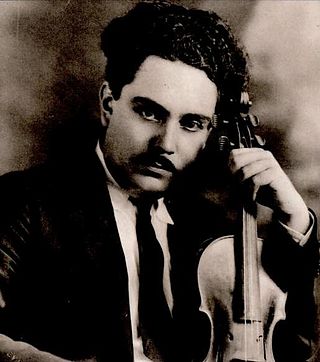External links
- http://www.robertokolb.com/ Roberto Kolb Web Page in Spanish
Roberto Kolb Neuhaus (1951, Mexico) is a Mexican musicologist and oboist of Austrian origin. He is widely known for his researches of Mexican composer Silvestre Revueltas. He has written many books and essays about the composer published in Mexico, United States, Vienna, and Berlin. He has been invited to musical congresses worldwide. In 1998 he published the first complete catalogue of Revueltas's works. He is the leading authority on Revueltas music.
He studied at the Conservatory of The Hague where he obtained a degree in oboe and a special degree in English horn. He has also studied baroque oboe, composition and sociology of music. He received a Ph.D. in History of Art from National Autonomous University of Mexico UNAM. For 15 years he played the oboe and English horn in the Filarmonica de la Ciudad de Mexico and in Filarmonica de la UNAM. He is founder and artistic director of Camerata de las Americas. Since 1994 he has been a teacher and researcher at the Escuela Nacional de Musica (UNAM). Recently he collaborated with the Orquesta Sinfónica de Guanajuato in the first world recording of Revueltas's orchestral work Esquinas in its two versions.

Silvestre Revueltas Sánchez was a Mexican composer of classical music, a violinist and a conductor.
Sergio Berlioz is a composer and musicologist who has participated in over 4000 conferences, round tables and concerts; with almost four decades of academic experience, Sergio Berlioz has taught and given seminars and lectures on music and history of art at various universities and cultural institutions throughout Mexico and the Czech Republic. He currently teaches in Casa Lamm, where his "Musical wednesday" conferences have become popular, and in the Instituto Cultural México Israel where he was recognized in 2015 as a valuable teacher and lecturer collaborating over twenty years in that institution.
Sensemayá is a composition for orchestra by the Mexican composer Silvestre Revueltas, which is based on the poem of the same title by the Cuban poet Nicolás Guillén. It is one of Revueltas's most famous compositions.
Hilda Paredes is one of Mexico's leading contemporary composers, and has received many prestigious awards for her work. She currently resides in London, and is married to the noted English violinist, Irvine Arditti.
Julio Estrada Velasco is a composer, theoretician, historian, pedagogue, and interpreter.
Danzón No. 2 is an orchestral composition by Mexican composer Arturo Márquez. Along with Carlos Chávez's Sinfonia India and Silvestre Revueltas' Sensemaya, Danzón No. 2 is one of the most popular and most frequently performed orchestral Mexican contemporary classical music compositions. Danzón No. 2 gained great popularity worldwide when the Simón Bolívar Youth Orchestra of Venezuela under Gustavo Dudamel included it on their programme for their 2007 European and American tour.
Sinfonía de Antígona is Carlos Chávez's Symphony No. 1, composed in 1933. The music originated as theatre music to accompany the tragedy of Antigone, hence the title of the symphony. The material was reworked into a single movement and rescored for a large orchestra. It lasts about 11 minutes in performance.

Sinfonía india is Carlos Chávez's Symphony No. 2, composed in 1935–36. In a single movement, its sections nevertheless follow the traditional pattern for a three-movement symphony. The title signifies the fact that the thematic material consists of three melodies originating from native-American tribes of northern Mexico. The symphony is Chávez's most popular composition.
Symphony No. 4, subtitled Sinfonía romántica is an orchestral composition by Carlos Chávez, composed in 1953.

Janitzio is a symphonic poem by the Mexican composer Silvestre Revueltas, composed in 1933 and revised in 1936. A performance lasts about 15 minutes. The work is a portrait of Janitzio Island in Lake Pátzcuaro, Mexico.

Colorines is a symphonic poem for chamber orchestra by the Mexican composer Silvestre Revueltas, written in 1932.

Lee Joseph Bracegirdle is an Australian-American composer, horn player and conductor.
The Mexico City Philharmonic Orchestra is an orchestra of international rank founded and underwritten by the national government of Mexico. The home venue is the Silvestre Revueltas Hall at the Ollín Yoliztli Cultural Center in Tlalpan, Mexico City, which opened in 1979.
La noche de los mayas is a film score by the Mexican composer Silvestre Revueltas for the 1939 film of the same name, which relates to Mexico's pre-Columbian heritage. Revueltas's score consists of 36 sequences without any organic relation to one another, composed to be easily fitted to an already-edited film. The work is best known in the symphonic suite extracted by the Mexican conductor José Yves Limantour, whose arrangement extensively alters Revueltas' original score.
Redes is a film score by Silvestre Revueltas for the 1936 eponymous film directed by Fred Zinnemann and Emilio Gómez Muriel. Redes means "nets" in Spanish. It was the composer's first film score, begun in 1934, when he visited the film crew on location in Alvarado, Veracruz. The film concerns the efforts of exploited fishermen to unite. In the US it was issued as The Wave.

Planos (Planes) is a chamber-music composition by the Mexican composer Silvestre Revueltas, also slightly enlarged and scored for full orchestra and published under its alternate title, Danza geométrica. Both versions were composed in 1934, and the scores are both dedicated to the architect Ricardo Ortega.

Cuauhnáhuac is an orchestral composition by the Mexican composer Silvestre Revueltas. It exists in three versions, the first for string orchestra, the other two for full orchestra with winds and percussion. The first version takes nearly 15 minutes to perform, while the third lasts only about 11 minutes.

Ventanas (Windows) is an orchestral work by the Mexican composer Silvestre Revueltas, written in 1931. A performance of it lasts about 11 minutes.

Esquinas (Corners) is an orchestral composition by the Mexican composer Silvestre Revueltas, written in 1931 and extensively revised in 1933. The first version is in two movements with a duration of about 11 minutes in performance; the second is variously described as being in one or in three (continuous) movements with a total duration of about seven minutes. The scores of both versions are dedicated to Ángela Acevedo.